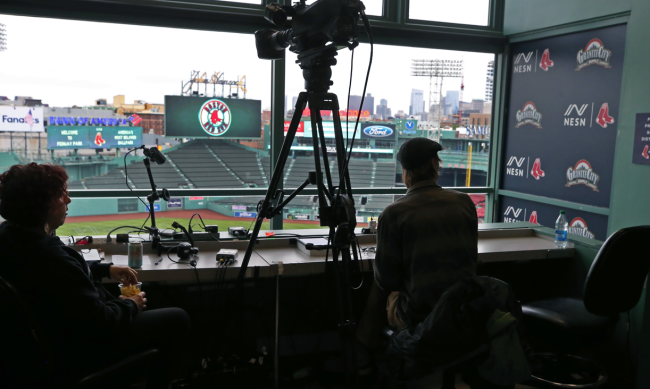
Getty Image
The implementation of a pitch clock in Major League Baseball was one of the most controversial rule changes the league made this past off-season.
Fans and players were rightfully worried about how it and other new rules would impact the game.
Now, with dozens of Spring Training games in the books, the pitch clock has undoubtedly shortened the overall times of games. It has also created less down time in the action. Which has, in turn, resulted in several controversial and hilarious moments.
There is one other aspect of implementing a pitch clock that almost no fans thought about when the rule was announced: how would it affect game broadcasts?
As it turns out, the pitch clock has affected and will affect baseball game broadcasts, both on TV and the radio, a lot.
This week, several Major League Baseball broadcasters and producers spoke to Chad Jennings of The Athletic about the changes they have already had to make.
According to MLB figures, the average time between batted ball events in the 1950s was 2 1/2 minutes. But by the 2020s, that number had soared to nearly 4 minutes.
Some quotes about the drastic reduction in time between pitches…
“It’s like waking up in a different hotel room, not knowing where you put your shoes, where the bathroom is, and the light doesn’t work,” NBC Sports Chicago play-by-play man Jason Benetti said recently. “You’re walking to where you think it is, and you walk directly into a wall.”
“It feels extremely off for me,” said Orioles play-by-play man Geoff Arnold.
“It was like being at an amusement park and going on a ride. It just moved fast, every part of it,” Red Sox broadcaster Mike Monaco said.
“It’s a lot of extra stuff to think about that wasn’t there before. And it’s all coming at once,” said Angels broadcaster Wayne Randazzo.
“Play-by-play is still going to do what the play-by-play guy does. But in order to analyze a play, I think that’s going to be a bear because that’s a lot to get in,” Yankees broadcaster Michael Kay said.
“You have to find opportunities and not just cram things in,” Rockies broadcast producer Alison Vigil said.
“The listener makes an adjustment, too,” said A’s radio play-by-play man Johnny Doskow.
Dodgers play-by-play man Joe Davis compared it to his 6-year-old playing T-ball and not understanding something as simple as a force out. Pickoffs and balks — not to mention balls and strikes — used to be as fundamental as a routine out at second base, but suddenly they’re coming with a new set of wrinkles.
“It’s not a great feeling to have to think about that kind of stuff,” said Davis, who also calls games nationally for FOX Sports. “Players talk about not wanting to think about their mechanics. We don’t want to think about things like that. It’s a little scary going into the season.”
As big of a change is the pitch clock is with regard to the pace and length of MLB games, Wayne Randazzo made perhaps the best assessment of it.
“Eighty percent of Vin [Scully]’s career, he worked with games that were this time or shorter,” Randazzo said. “So, I think there’s still a way to do it and still make it fun and entertaining and kind of a normal broadcast.”